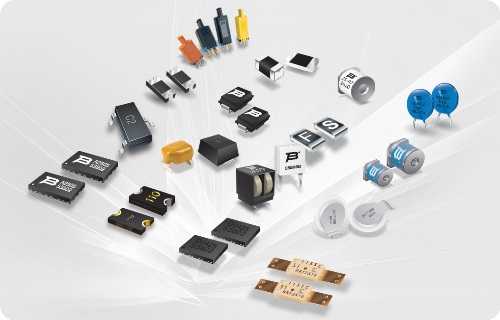Electrical fires can be devastating, causing damage to property and, more importantly, posing serious risks to life and safety. The good news is that many electrical fires can be prevented with the right protection products and responsible practices. In this guide, we will explore tips for using protection products effectively to prevent electrical fires, ensuring a safer and more secure environment.
- Surge Protectors: Safeguarding Against Power Surges
Power surges, whether caused by lightning, utility company issues, or other factors, can damage your electrical devices and create fire hazards. Surge protectors act as a first line of defense against these surges.
Choose High-Quality Surge Protectors: Not all surge protectors are created equal. Invest in surge protectors with robust specifications and ensure they meet industry standards.
Proper Placement: Plug your sensitive electronic devices, such as computers and televisions, into surge protectors. Make sure these surge protectors are installed at the outlets closest to the devices.
Regular Replacement: Surge protectors wear out over time. Replace them as recommended by the manufacturer to ensure continued protection.
- Arc Fault Circuit Interrupters (AFCIs): Detecting Dangerous Arcs
Arc faults are electrical discharges that can lead to fires if left undetected. AFCIs are designed to identify these dangerous arcs and shut off the circuit to prevent fires.
Install AFCIs: Ensure that your electrical system includes AFCIs, especially in bedrooms, living rooms, and other living spaces where electrical fires can have devastating consequences.
Regular Inspection: Periodically inspect AFCIs to ensure they are functioning correctly. Test the “Test” button on the AFCI to ensure it trips properly.
- Ground Fault Circuit Interrupters (GFCIs): Protecting Against Electrical Shocks
GFCIs are essential for preventing electrical fires and protecting against electrical shocks in areas where water is present, like kitchens, bathrooms, and outdoor outlets.
Install GFCIs Near Water Sources: Ensure that GFCIs are installed near sinks, showers, outdoor outlets, and other areas where electrical devices and water might come into contact.
Test Regularly: Like AFCIs, GFCIs should be tested regularly to ensure they are working correctly. Push the “Test” button to trip the GFCI and then reset it to ensure proper functionality.
- Electrical Panel Maintenance
The electrical panel is the central hub for electrical circuits in your home. Proper maintenance can prevent overheating and electrical fires.
Regular Inspection: Periodically inspect your electrical panel for signs of overheating, melting, or burnt connections. If you observe any of these signs, it’s advisable to get in touch with a professional electrician.
Keep Access Clear: Ensure that the area around your electrical panel is clear of obstructions. In case of an emergency, it’s vital to have easy access to the panel.
- Wiring Insulation and Protection
Wiring insulation and protective coverings play a vital role in preventing electrical fires. Damaged or deteriorating insulation can lead to short circuits and fires.
Replace Damaged Wiring: If you notice wiring with damaged insulation, have it replaced promptly. Damaged wiring can pose a significant fire hazard.
Avoid Overloading Circuits: Overloading circuits with too many devices can cause overheating. Ensure that circuits are not overloaded and distribute electrical loads evenly.
- Regular Inspections by Professionals
While many protection products and practices can be implemented by homeowners, it’s crucial to have your electrical system regularly inspected by professional electricians.
Annual Inspections: Schedule annual electrical inspections to identify potential issues and ensure that your electrical system is up to code.
Prompt Repairs: If an electrician identifies any electrical hazards or concerns during an inspection, address them promptly to prevent potential fire risks.
- Electrical Safety Education
Educate your family members about electrical safety practices. Make sure they understand the importance of not overloading circuits, using protection products, and responding to electrical issues promptly.
Emergency Response: Teach your family what to do in case of an electrical fire, including how to use a fire extinguisher and how to safely exit the premises.
Safety Practices: Encourage safe practices like unplugging devices when not in use, keeping flammable materials away from outlets, and not using damaged cords or outlets.
- Fire Safety Equipment
In addition to protection products, having fire safety equipment on hand is crucial. Fire extinguishers and smoke detectors are essential tools for addressing fires promptly.
Smoke Detectors: Install smoke detectors throughout your home, and regularly check and replace their batteries. Smoke detectors can provide early warnings that allow you to address fires before they escalate.
Fire Extinguishers: Keep fire extinguishers in accessible locations, especially in the kitchen and garage. Make sure that family members know how to use them effectively.
Conclusion
Preventing electrical fires requires a combination of protection products, responsible practices, and regular inspections. By investing in high-quality surge protectors, AFCIs, GFCIs, and other safety measures, you can significantly reduce the risk of electrical fires. Combine these products with proper education and a proactive approach to electrical safety to create a safer and more secure living environment for you and your family.
Looking for a reliable Schneider dealer in Vadodara? Look no further! We are your authorized source for genuine Schneider products, ensuring quality, expertise, and seamless electrical solutions.

